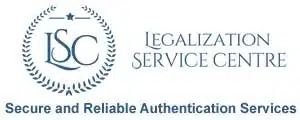Legal terms and processes present a unique paradox. They are arguably some of the most important things you will need to understand completely and are—at the same time—some of the most difficult to understand. The term Apostille is surely a term that you will hear if you are dealing with documentation across international borders. In an effort to dispel any confusion around the topic, we decided to take a minute to provide a full understanding of the term and its common usage.
What is Apostille?
The term “Apostille” is used to reference a type of authentication issued for documents for use in countries that participated in the Hague Convention of 1961. The Hague Convention Abolishing the Requirement of Legalisation for Foreign Public Document—commonly referred to as the Hague Convention, Apostille Convention or Apostille treaty, specifies the method in which a document can be certified for legal purposes in all the other signatory state. It is often compared to notarization. In the case that a document is being exchanged between two countries who signed the convention, an apostille sufficiently certifies the validity of a document and removes the requirement for double certification.
Who can affix an Apostille?
Much like a notarized document requires a certified notary to legally and properly complete the process of notarization, an apostille must be affixed by a person referred to as a competent authority who has been designated by the government of a state which is part of the convention. Designated authorities might be an embassy, ministry, court or local government. In the United States, the Secretary of State is typically used as the competent authority. The Hague keeps a complete list of who is considered a designated authority for each member country.
What kind of Documents might require an Apostille?
Any document that requires the validation or certification of authenticity may require an apostille.
- Any document issued by or being submitted to a court
- Any civil status documents, like a birth certificate that serves as an administrative tool
- Notarial acts like a marriage document, subpoena, or affidavit.
- Any official certificate signed in a private capacity.
Apostille in Canada
Canada is not a member of the Hague Convention and so, the mechanizations of apostille are not applicable to Canadian documents. If an apostille has been mistakenly placed on a document and submitted for authentication in Canada, a new (clean) version of the document must be obtained prior to submitting to a Canadian Embassy or Consulate. For countries who have NOT participated in the Hague Convention, the document in question must be certified by the foreign ministry of the home government or state in which the document will be used and the government or state from which the document originated. This effectively means that certification must happen twice for it to have a full legal effect.
Legalization Service Center has been helping people through the process of legal and timely authentication and legalization of documents leaving and coming to Canada for years. If you have questions about a document or need help completing the process, don’t hesitate to contact us.

